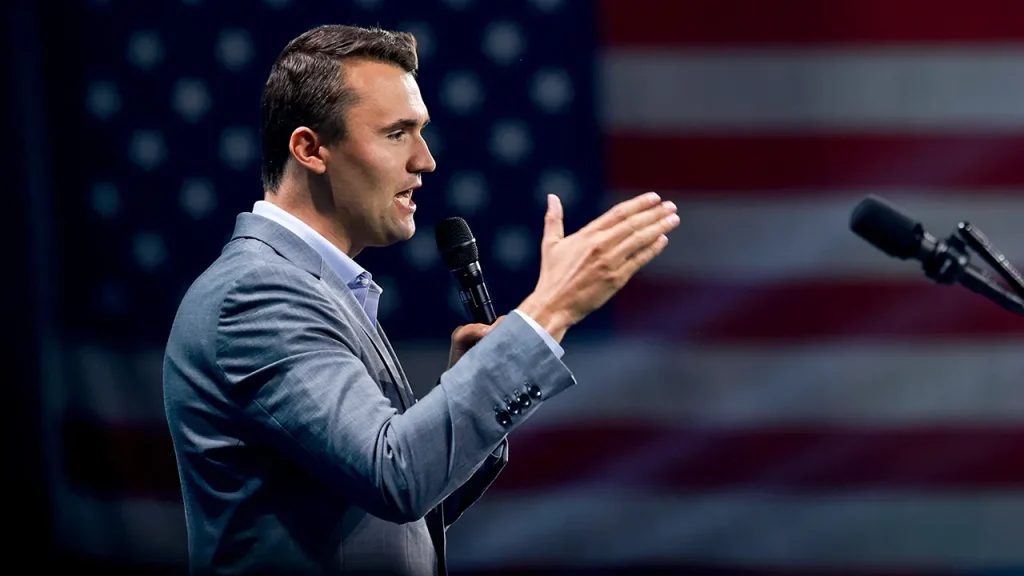Remembering Charlie Kirk: The Voice That Reached Beyond Borders
In the wake of Charlie Kirk’s tragic assassination on September 10 during “The American Comeback Tour” at Utah Valley University, a profound question emerges about why the founder of Turning Point USA became a target. Dr. Wendy Patrick, a career prosecutor and author, suggests that Kirk may have been killed not merely for his conservative views, but for the extraordinary reach and influence of his message. This perspective offers a sobering insight into today’s politically charged climate, where the fear of someone’s influence can potentially trigger violence. “People were listening to the content of what Charlie Kirk had to say,” Patrick observed, highlighting how Kirk’s ability to connect with audiences made his voice particularly powerful—and perhaps threatening to those who opposed his viewpoints.
The global impact of Kirk’s life and work became evident in the aftermath of his death. Vigils weren’t limited to American soil but spread internationally to cities like London, Sydney, and Berlin, demonstrating the worldwide resonance of his message. The memorial service held at State Farm Stadium in Glendale, Arizona, drew between 90,000 and 100,000 attendees according to Turning Point USA—a testament to the lives he touched. Patrick suggests that Kirk’s approach sparked genuine curiosity even among those who disagreed with him: “They were curious in knowing what made someone like Charlie Kirk tick. Could it be that he was on to something that maybe was worthy of a little bit more exploration on their part?” This curiosity speaks to Kirk’s ability to present conservative ideas in a way that invited consideration rather than immediate dismissal.
What set Kirk apart, according to Patrick, wasn’t necessarily the novelty of his conservative message but rather his distinctive approach to delivering it. In a political landscape often characterized by hostility and antagonism, Kirk chose a different path. “What was new is the boldness, gentleness and graciousness with which Charlie Kirk was able to explain that,” Patrick noted. Unlike many political commentators who prioritize winning debates, Kirk’s goal appeared to be fostering genuine conversations, even with those who held opposing viewpoints. This approach of respectful dialogue in an era of increasing polarization made Kirk stand out among political communicators and helped his message reach those who might otherwise have been unreceptive to conservative ideas.
The reach of Kirk’s influence was acknowledged across political lines. Ezra Klein, not typically aligned with conservative viewpoints, wrote in an opinion piece: “When the left thought its hold on the hearts and minds of college students was nearly absolute, Kirk showed up again and again to break it.” This recognition from ideological opponents underscores Kirk’s effectiveness in creating space for conservative thought in environments traditionally dominated by progressive perspectives. His work with college students particularly demonstrated his commitment to ensuring that younger generations were exposed to diverse viewpoints. By maintaining a presence on university campuses and engaging directly with students, Kirk challenged the ideological monopoly that many believed existed in higher education.
Tragically, Kirk seemed to have foreseen the growing dangers of political extremism. Months before his assassination, he posted on X (formerly Twitter) that “Assassination culture is spreading on the left.” His observation appears to align with findings from the Network Contagion Research Institute, which documented an increase in the justification for lethal violence, particularly among younger, left-aligned individuals. This disturbing trend raises important questions about the relationship between political rhetoric and real-world violence, and whether intense political disagreement is increasingly being seen as justification for extreme actions. Kirk’s assassination forces us to confront these uncomfortable realities about the state of political discourse in America.
At its core, Kirk’s legacy extends beyond policy positions or political activism. According to Patrick, Kirk “expressed a message that was not only interesting to listen to, but impactful to the hearts of the listeners.” This ability to reach both the minds and hearts of his audience gave his message unusual staying power. While many can articulate political positions, fewer can do so in a way that resonates emotionally and intellectually with diverse audiences. Kirk’s approach to communication—combining conviction with compassion, boldness with graciousness—offers a model for political discourse that might help heal the divisions in American society. As the nation mourns his loss, perhaps the most fitting tribute would be to embrace his commitment to respectful dialogue across political differences, recognizing that influence should be met not with violence but with thoughtful engagement.


